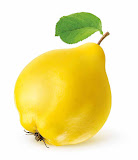Dear Reader,
I was luckily given a wonderful book for Christmas written by Lucy Worsley about Jane Austen's homes, which I have already started and am enjoying immensely. I wondered what Jane Austen's Christmas was like. She mentions Christmas in all her novels and, researching, I found that the picture emerges of a warm one, full of time spent with family and friends, stoking 'a roaring Christmas fire' against the snow outside. Everyone made merry with dancing, parties, plays, balls, and general frivolity.
in 1806 her niece Fanny described the Austen family festivities with similar glowing evocation: 'We have all spent a very merry Christmas with different amusements every evening. First we had Bullet Pudding, then Snap Dragon. In the evening we dance or play cards'.
Christmas was a longer season for the regency gentry and lasted until the 6th of January, Twelfth Night. Christmas Day itself would have begun with a church service, requiring the faithful to bundle up well against the cold outside, and unheated church inside.
*
From James Woodforde, 1790, in Norfolk, 25th December
"I lighted my large wax-candle being Xmas Day during tea-time this afternoon for about n hour. It was very mild, thank God, to-day for this time of the year, tho' wet and very dirty walking'.
*
January Weather
We know from recorded history,
that in St. Merryn
a hundred years ago,
there blew great winds
and the sea was smoking white.
We know it was warm in Kent,
where the thrushes thought spring
had come, and piped away.
And primroses were a yellow carpet
in North Norfolk,
or so the parson wrote.
We know of cutting winds in Hampshire,
of icicles and frost, and
in Skiddaw on a mild day,
a brown spotted butterfly was seen.
We know that hungry church
mice ate bible markers,
hungry people died of cold.
And we know that this dark winter month
had days of snow, that wild clouds
gathered in the sky unleashing icy rain,
churning up the plough.
And yet again, we also know
the sun shone in that distant year,
it was warm enough to push
early snowdrops, and Holy Thorn.
Light was glimpsed, here and there,
all life struggled for its moments.
*
With very best wishes for a happy New Year, Patricia



























